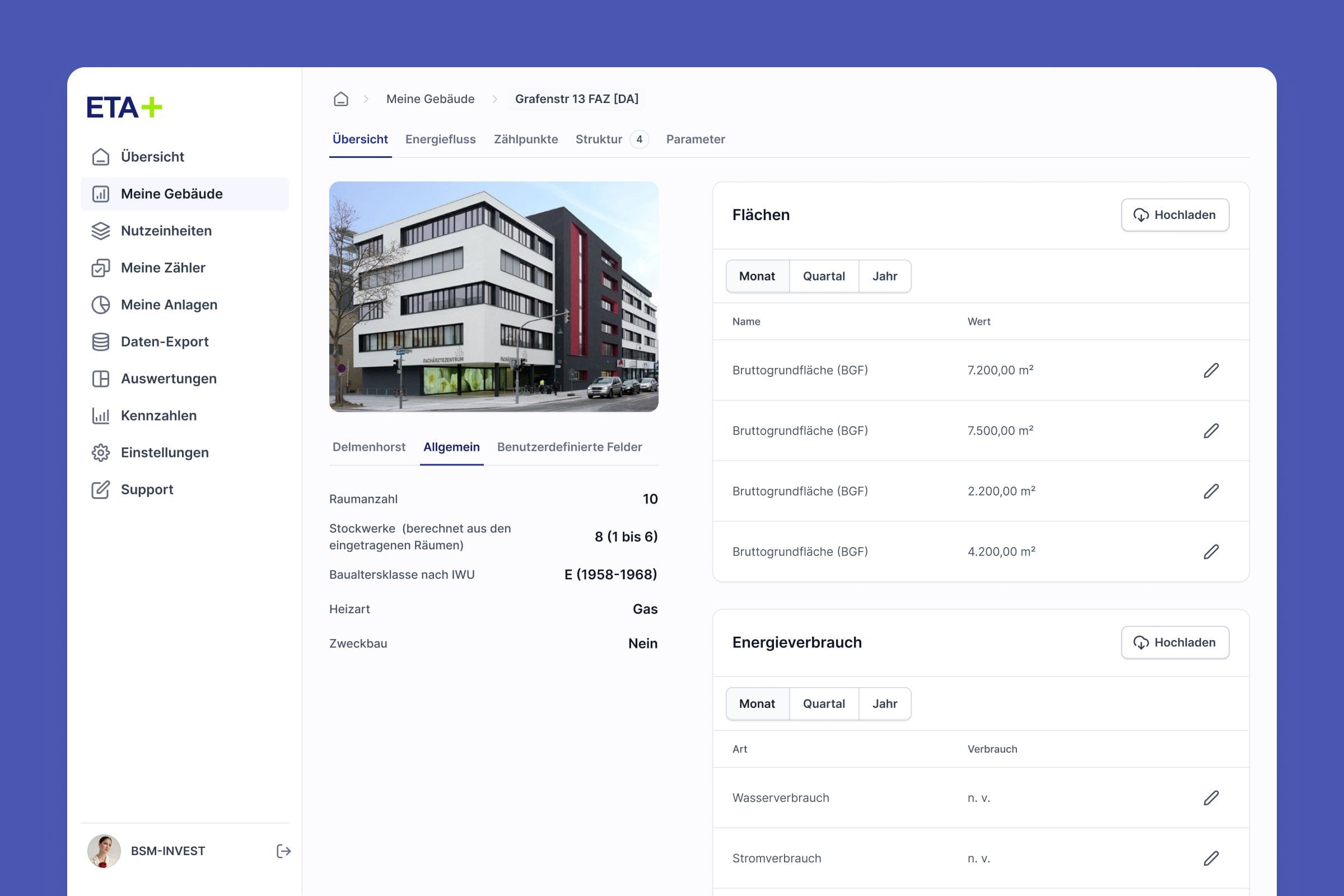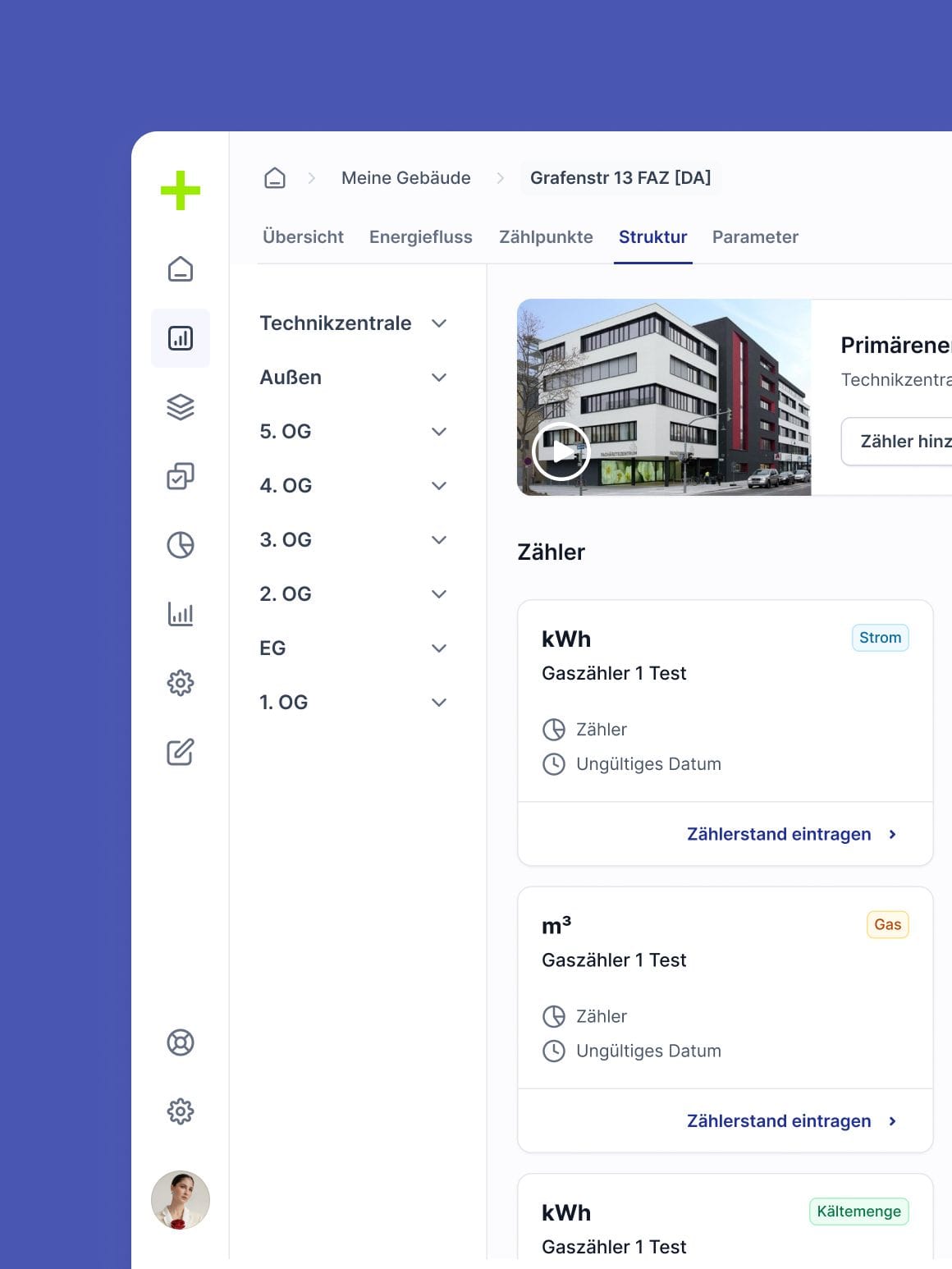

ETA+ is a cloud-based platform that helps building owners and managers increase energy efficiency based on a digital twin for each building, which includes all facilities and devices.
TECHNOLOGY STACK
.NET
ENTITY FRAMEWORK
ETA+ is a sophisticated and expansive platform with numerous integrations and vast amounts of data. Its primary function is to aggregate data from various smart home apps and devices, processing it to create reports for building owners and managers regarding building efficiency.
Built using the outdated AngularJS framework, the system became outdated and vulnerable, necessitating re-engineering. Over time, the large and monolithic solution could not keep pace with the growing business needs, which included a huge increase in users and integrations.
OTAKOYI's loyalty to ETA+ has been impressive, both in terms of their work and communication. OTAKOYI is a reliable partner, delivering on time, within budget, and with good quality. We can count on them to meet our needs, even with changing requirements.
Migrating a platform with a significant amount of data and users requires careful handling. We opted for a section-by-section migration approach, utilizing two primary tools: Nx Monorepo and Angular elements.
With Nx technology, we transitioned from a monolithic structure to microservices, rewriting each component using the latest Angular17 framework and encapsulating them into Angular Elements. This approach resulted in a flexible system compatible with most modern technologies.


Angular's guidelines suggest gradual migration by enabling AngularJS and Angular components to coexist within the same application. ngUpgrade provides APIs for interoperability between AngularJS and Angular, allowing them to communicate and share data. Essentially, you connect new components and link them to the old ones. However, we rejected this scenario as it couldn’t resolve the client's scalability and interoperability issues.
Angular Elements allows developers to create standalone Angular components that can be used in any web application, regardless of the underlying framework.
This approach enables the creation of a fully upgraded platform without the old AngularJS code lingering under Angular 17. Angular Elements takes an Angular 17 component, compiles it into a standalone custom element, and exports it as a JavaScript that is compatible with a wide range of technologies.
As always, there are multiple upgrade options available, and the choice is dictated by the business goals. We opted for an option that enabled us to modernize the platform by making small yet important changes to the architecture, components, and database.
Initially built monolithically, ETA+ had outgrown it, requiring increased capacity to accommodate its expanding operations. In response, the client decided to address all system constraints during the migration process, making the best choice for their business.


The platform comprises two databases housing various types of information crucial for the client's operations. With ETA+ aiming to connect 1,000,000 devices to the platform by the end of 2024, efficient data storage became crucial. To address this, we migrated certain calculations from the database to the backend, implemented indexing to expedite request processing, and optimized the number of requests made by pages, some of which reached up to 100.
The data is now well-structured, the database operates swiftly, and only necessary requests are processed at any given moment.
To gain deeper insight into the impact of our collaboration, listen to the RealTalk Podcast episode featuring Dirk Wittler, Head of Sales and Business Development at ETA+ GmbH. In this thoughtful conversation, Dirk discusses one of today’s most pressing global challenges — the energy crisis — and shares how ETA+ is driving meaningful change by reducing CO₂ emissions and advancing sustainable solutions.

Migration from AngularJS became highly demanded when support for this version was terminated by Angular. The ETA+ case serves as an excellent example of how migration can mark a new beginning for software. Firstly, transitioning to microservices enabled us to scale the platform efficiently, which was crucial given the rapid growth in users and data. Secondly, we optimized certain backend components, resulting in improved solution speed. Thirdly, automation of data collection enhanced platform independence and ease of maintenance. We continue to work closely with the client to achieve even better results.
We have a proven track record of building high quality solutions for customers all over the world.
The key to a successful project is a strong business idea backed by real market need, a solid tech solution, and a clear go-to-market plan.
